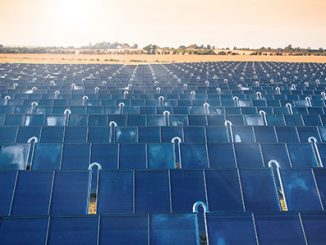The Uttar Pradesh Power Corporation Limited (UPPCL) has issued a request for proposals for project developers to establish 2,000 MW grid connected solar projects. To be located anywhere in India, the projects will be developed on the basis of build, own, operate, and maintain model for a period of 25 years. The projects’ ceiling tariff is set at Rs 2.7 per kWh.
According to the tender guidelines, the bidders are required to submit Rs 900,000 per MW as an earnest money deposit. No distinct central financial aid is planned for the projects’ implementation. The bid submission deadline is March 18, 2024.
The participants are allowed to take advantage of financial incentives like tax breaks, reduced customs and excise duties, and expedited depreciation that are specific to these kinds of projects. The benefits outlined in the Uttar Pradesh Solar Policy 2022 will apply to the solar projects proposed for development in the state by the bidders. To be eligible, the bidders must have either operational solar power projects/storage projects or must be currently in the process of constructing such projects, holding unutilised capacity. In such cases, they will receive the benefit of an extended duration for the power purchase agreement, corresponding to the time gap between the actual commencement of power supply and the scheduled commencement date of supply. A bidder, encompassing its parent, affiliate, ultimate parent, or any group company, must submit a single bid proposing a contracted capacity within the range of 50 MW to 1,000 MW. The bidder retains the right to choose the project locations at its own expense, risk, and liability. As determined by the bidder or solar power producer, the project’s cumulative capacity may be put up at a single location or as a group of blocks spread over several locations. These blocks have to be located in the same state in case of a single project.
In October 2022, the UPPCL issued tender to establish five standalone battery energy storage systems of 10 MW/40 MWh each in the state.



